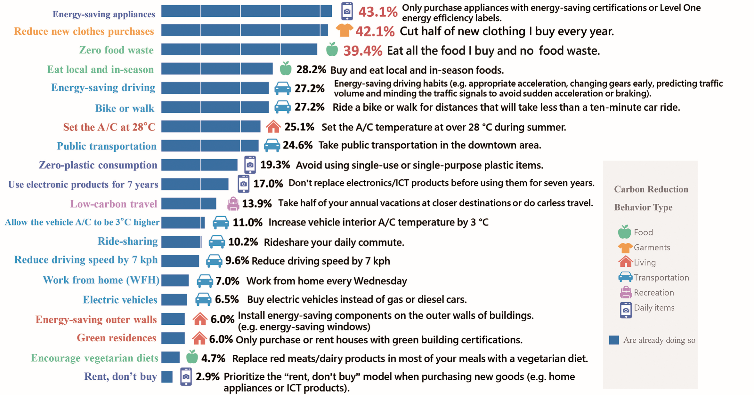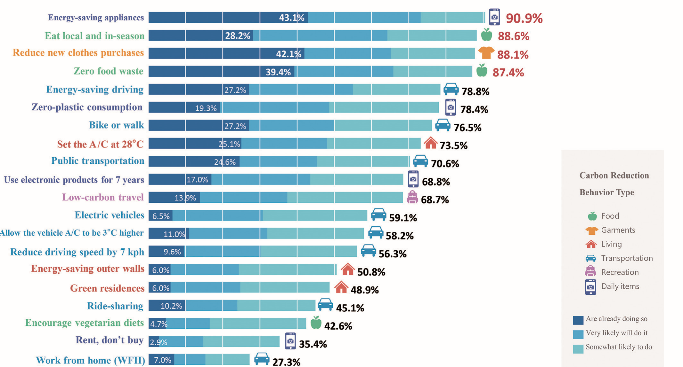Starting in 2018, ITRI began to plan longterm technology development directions according to the 2030 Technology Strategy & Roadmap under the leadership of President Edwin Liu. During the following years, we observed major international trends and events, including the COVID-19 pandemic, and revised the Roadmap accordingly. In 2022, ITRI announced suggestions on the technology development schemes covered in Taiwan’s 2050 Net-Zero Emission Roadmap.
The Industry, Science and Technology International Strategy Center (ISTI1) of ITRI is an active member of ITRI’s 2030 planning team and also thrives to realize ISTI’s 2025 vision: Inspire sciencetechnology innovation and value-up for Taiwan industries. We aim to assist ITRI in connecting and facilitating collaborations between Taiwan’s tech research institutions and industries and the global innovation ecosystem. The objective is to understand global industry and technology trends and generate comprehensive plans that also take economy, society, and environment into consideration to help Taiwan become a key partner in global Resilient Industry Ecochains and enhance overall industry add-on value.
Low-Carbon Lifestyles will Stimulate the Growth of Green Industry Chains
Every year since 2013, ISTI assembles the Center’s industry analysts, sales team, and professionals from various fields as well as technical experts from ITRI and external agencies to provide feedback and suggestions on research results and development policies related to one major industry and technology issue Taiwan should focus on in the coming five years. The suggestions are presented in the annual publication IEKTopics and relevant policy results and/or industry benefits are continuously followed up. The topics of past issues are:
- 2021 – International Linkage: Resilient for Co-Innovation, Sustainable for CoProsperity
- 2020 – Resilient Ecosystem: Crossdomain Value Creation and Talent for Pilot
- 2019 – Ecosystem Creation: ScienceTechnology Value-added to Converging Services
- 2018 – Future Opportunities: Industry Innovation by Asian Technologies
- 2017 – Sustainability Development: Circular Regeneration for Innovation Economy
- 2016 – Problem Resolution: Smart Innovation, Happy City
- 2015 – First-Mover Opportunities: IoT Blitz Connecting Things and Minds
- 2014 – Future Triumph: Envision Lifestyle to Lead Innovation
- 2013 – Turnaround Victory: Advanced Manufacturing as New Power for Taiwan
Given that over 130 countries have pledged “2050 Net-Zero Emissions” as their long-term environmental protection goal, IEKTopics selected the “2022 People Behavior Study in Taiwan for Net-Zero Sustainability” as its issue topic for this year. We hope to encourage the public to make small changes in their daily lives with a joyful and active mindset by promoting the concept of “those who are kind appreciate the mountains and those who are wise enjoy the waters” mentioned in The Analects. We believe that the accumulation of concrete actions as well as additional green energy and carbon reduction measures will eventually let us realize our net-zero sustainability goals.
Up to now, many studies done by international organizations show that consumer behavioral changes are crucial to carbon reduction. For example, IEA believes that behavioral changes to reduce carbon emissions before 2050 will eventually cut down 16% of the total carbon reduction volume; and the IPCC also pointed out that carbon reduction measures on the demand side can reduce 40% to 70% of greenhouse gas emissions.
In response to these global findings, the Taiwanese government announced Taiwan’s 2050 Net-Zero Emissions Roadmap & Strategy in March 2022. The Roadmap focuses on four transformation areas: energy, industrial, lifestyle, and social transformations, and set Technology R&D and Climate Regulations as its two major governance foundations which are supported by twelve key strategies. In terms of lifestyle transformation, we aim to encourage the public to change their behaviors in areas such as food, garments, living, and transportation. The goal is to realize low-carbon lifestyles and motivate businesses to set up green lifestyle industry chains.
Public Behaviors can Affect Policy Directions
Usually, it is difficult to change the lifestyle of the general public, so when the government is planning net-zero carbon reduction policies, the public’s degree of acceptance should also be taken into account. Thus in April this year, ISTI conducted the survey on “Willingness to Carry Out Net-Zero Sustainability Behaviors” to which over 1,600 Taiwanese citizens aged between 18 and 64 responded. We hope to understand the Taiwanese public’s opinions on different green lifestyle behavioral changes and let the results serve as a reference for the government when setting future policies and for businesses when they are developing new products.
Survey and research rundown:
- Completed the 2022 “Willingness to Carry Out Net-Zero Sustainability Behaviors” survey.
- Filtered out the behavioral changes the public is most willing to execute.
- Studied successful international cases which facilitated behavioral changes.
- Analyzed and studied focus groups to understand factors that led to behavioral changes.
- Generated suggestions on public behavioral change policies.
In this survey, we categorized twenty important carbon reduction consumer behaviors recognized globally into the following categories: Food, Garments, Living, Transportation, Recreation, and Daily Items; and analyzed the collected data from different aspects, including current status & behavior, future willingness to execute them, and impact of carbon reduction information. The following is a summary of the major findings from this survey:
- Top three behaviors that the public “Are already doing so”:
[Daily Items] Only purchase appliances with energy-saving certifications or Level One energy efficiency labels. (43.1%) [Garments] Cut half of new clothing I buy every year. (42.1%)
[Food] Finish the food I bought and threw away nothing. (39.4%)
- Top three behaviors in “Are already doing so” and “Very likely will do it” combined:
[Daily Items] Only purchase appliances with energy-saving certifications or Level One energy efficiency labels. (90.9%) [Food] Buy and eat local and in-season foods. (88.6%)
[Garments] Cut half of new clothing I buy every year. (88.1%)
- After the “high contribution to carbon reduction” prompt was given, the top three items in “Are already doing so” and “Very likely will do it” are:
[Food] Replace red meats / dairy products in most of your meals with a vegetarian diet. (+8.7%)
[Food] Finish the food I bought and threw away nothing. (+3.4%)
[Transportation] Work from home every Wednesday. (+3.1%)
Discovering Future Business Opportunities from Market Case Studies
The intervention measures in the case studies used in this research were broken down and categorized into the four principles (Easy, Attractive, Social, Timely) mentioned in the EAST framework published by Behavioral Insights Team (BIT), a UK behavioral economics research team. Seventeen net-zero sustainability behavior items with market potential were selected as our research subjects. The objective is to figure out the key factors that successfully changed consumer behaviors and use the results as important reference information when developing Taiwan’s future net-zero sustainability policies and business opportunities.
For example, for the survey item “Replace red meats/dairy products in most of your meals with a vegetarian diet”, the percentage of “Are already doing so” is relatively low (4.7%) and the percentage of “Very likely will do it” is 37.9%. But after prompting the respondents that this item has a “high contribution to carbon reduction”, the combined percentage of “Are already doing so” and “Very likely will do it” increased by 8.7%. The case study used for this item was US company Impossible Foods, a plant-based meat manufacturer. The company aims to reduce carbon emissions by encouraging meat lovers to switch to plant-based meat. They use genetic engineering technologies to give plant-based meat the color and “bloodiness” of real meat (Easy, Attractive), aggressively increased their sales channels to let consumers have easier access to the products (Timely), and expanded their production capacity to boost price competitiveness (Attractive). In the future, they hope that the global net-zero emissions trend will change meat tax policies (Social) and speed up the commodification of plantbased meats.
Net-Zero Sustainability Behaviors the Taiwanese Public are Already Doing in 2022

Source: ITRI IEK Consulting 2022 People Behavior Study in Taiwan for Net-Zero Sustainability Survey
Net-Zero Sustainability Behaviors the Taiwanese Public are Already Doing + Very Likely will Do + Somewhat Likely to Do in 2022
Source: ITRI IEK Consulting 2022 People Behavior Study in Taiwan for Net-Zero Sustainability Survey
Last but not least, the main visual on the issue cover draws inspiration from the popular game Scrabble: tiles with Chinese characters and English letters spell out key points in our People Behavior Study in Taiwan for Net-Zero Sustainability and simple icons that represent different green lifestyles are added to the design. Natural elements such as mountains, rivers, clouds, and trees in the background along with illustrations of different types of green energy express the idea of “those who are kind appreciate the mountains and those who are wise enjoy the waters”.
Note 1: The Industry, Science and Technology International Strategy Center (ISTI) at ITRI was established in 2018 when ITRI consolidated the original IEK (established in 2000), IIC (established in 2006), overseas offices, and regional and crossstrait divisions. The new organization is expected to help Taiwan become a key partner in the global innovation arena and increase overall industry addon value.


